Summary
- CRPGs continue the communal storytelling tradition, evolving from dungeon-crawlers to immersive modern narratives.
- Games like Ultima IV shifted perceptions by focusing on philosophical storytelling over traditional good versus evil narratives.
- Baldur’s Gate 3 captures the magic of TTRPGs by offering a reactive and alive world where player choice is key.
Storytelling has always been a communal experience that connects people through collective creativity. It’s also an iterative process, where stories are often built upon those that came before—much like the myths and legends of many cultures, retold and reshaped over the years to meet the needs of their communities.
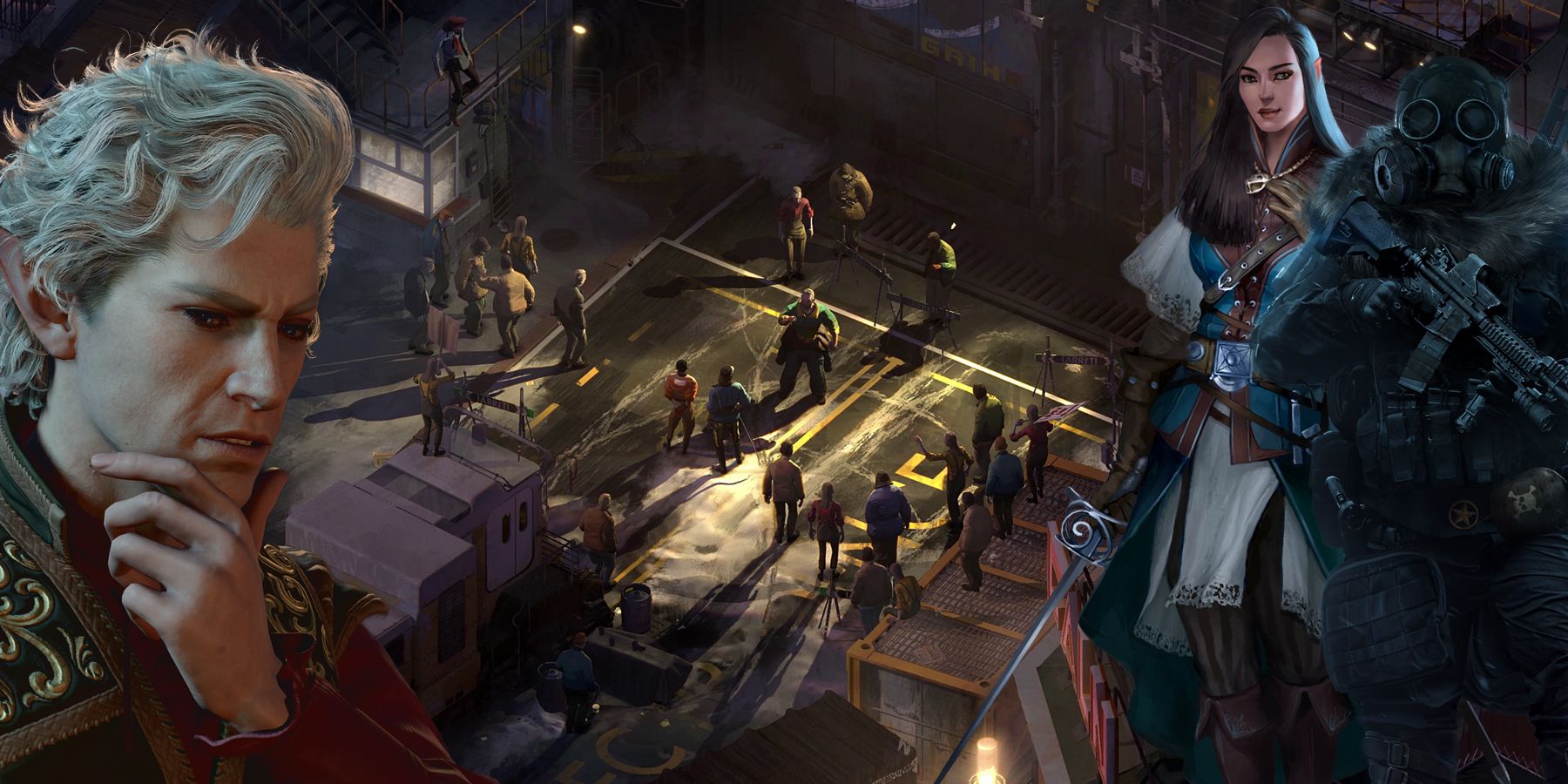
Related
CRPG was once thought to be a dead genre, but games like Disco Elysium & Divinity Original Sin resurrected it. Here are the best modern ones.
Today, this tradition continues in a new form as CRPGs build upon this legacy, evolving from humble dungeon-crawlers to modern cinematic masterpieces. These games invite players to become both the audience and the storyteller, purposefully giving them a digital quill to create their own myths and legends.
6
Akalabeth: World Of Doom
1970s
- Platform(s): PC
- Released: 1979
- Developer: Richard Garriott
Akalabeth defaults into the victory position for this decade, being the sole game released during that period that could be classified—even tangentially—as a ‘CRPG’. Emerging from the digital primordial soup of home computers in an era dominated by arcade and text-based adventures, it provided an embryonic framework for 3D-based narrative fiction, which would go on to serve as the progenitor of the CRPG genre—a seminal glimpse into the future of interactive storytelling.
Although narratively sparse, the game blends D&D-inspired character creation with randomised dungeon layouts—one of the earliest examples of procedural generation—whilst utilising wireframe 3D graphics to offer a surprisingly immersive dungeon-crawling experience. It demonstrated the potential for fully realised interactive worlds on home computers at the time, whilst paving the way for the immensely popular Ultima series that was soon to come.
5
Ultima IV: Quest Of The Avatar
1980s
Ultima 4: Quest Of The Avatar
During the 18th century—when novels were a relatively new form of entertainment—many moralists and physicians saw excessive novel-reading as indulgent distractions fostering laziness or moral decay. However, authors like Samuel Richardson and Jane Austen elevated the medium, demonstrating that novels could serve as tools for moral and artistic expression. Just as novels overcame early scepticism, video games faced similar rhetoric from their detractors in the late 20th century until Ultima IV shifted perceptions.
Where contemporaneous games relied heavily on the traditional antagonistic battles of good versus evil, Ultima IV eschews this and experimented in philosophical storytelling, tasking the player to become the ‘Avatar’—a digital epistolary chronicling their virtues—and embody ideals such as Compassion, Honesty, and Justice. Through its Eight Virtues system, Ultima IV mirrored the literary canon of Richardson’s moral introspection and other seminal works, and, by doing so, elevated itself—and the genre—into an interactive morality play, a digital Dante’s Divine Comedy.
4
Planescape: Torment
1990s
-

OpenCritic
-
Top Critic Rating:
84/100
Critics Recommend:
77%
- Released
-
December 12, 1999
- ESRB
-
t
- Developer(s)
-
Black Isle Studios
The 90s marked the golden age of CRPGs, with several groundbreaking titles—such as Baldur’s Gate and Fallout—emerging to leave an indelible mark on the genre. And then there was Planescape. Whilst other games focused on mechanical complexity or graphical innovation, Planescape sought to immerse players in their own thoughts, positioning them as an amnesiac immortal, doomed to wander the labyrinthine city of Sigil burdened by the consequences of countless past lives.
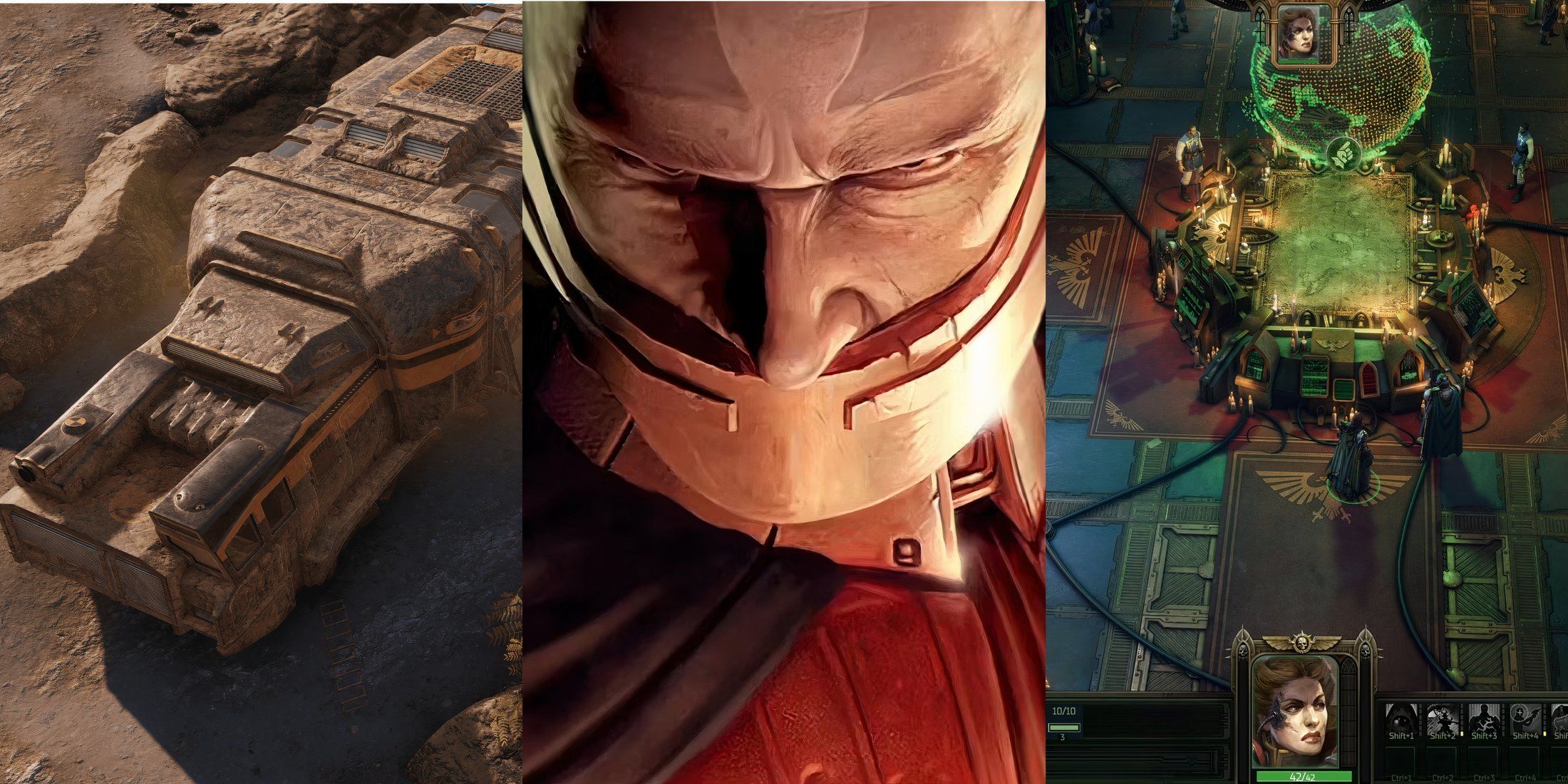
Related
CRPGs are a staple of the roleplaying genre – but while most skew toward fantasy, there are a handful of sci-fi-oriented titles out there.
Although revolutionary in its narrative ambition, Planescape: Torment struggled to find an immediate audience, dismissed by players unprepared for its dialogue-dense approach to gaming in an era defined by action-driven RPGs. Yet, in many ways, it parallels Herman Melville’s Moby-Dick, another work initially overlooked as readers were unprepared for its existential musing disguised as a whaling adventure. But, as the decades waned, Moby Dick found lasting acclaim, proving the enduring power of narrative ambition—and it seems that time is beginning to favour Planescape: Torment similarly.
3
Dragon Age: Origins
2000s
The concept of an ‘origin’ has been a staple of nearly every CRPG. Players may take on the role of a dashing bard, a roguish scoundrel, or a noble knight, but regardless of their chosen persona, they are often bound to a universal background for narrative ease. In Baldur’s Gate, the player is always a Bhaalspawn; in Planescape: Torment, they’re an immortal Nameless One; and in Knights of the Old Republic, a hired hand aboard the Endar Spire under Bastila Shan’s command.
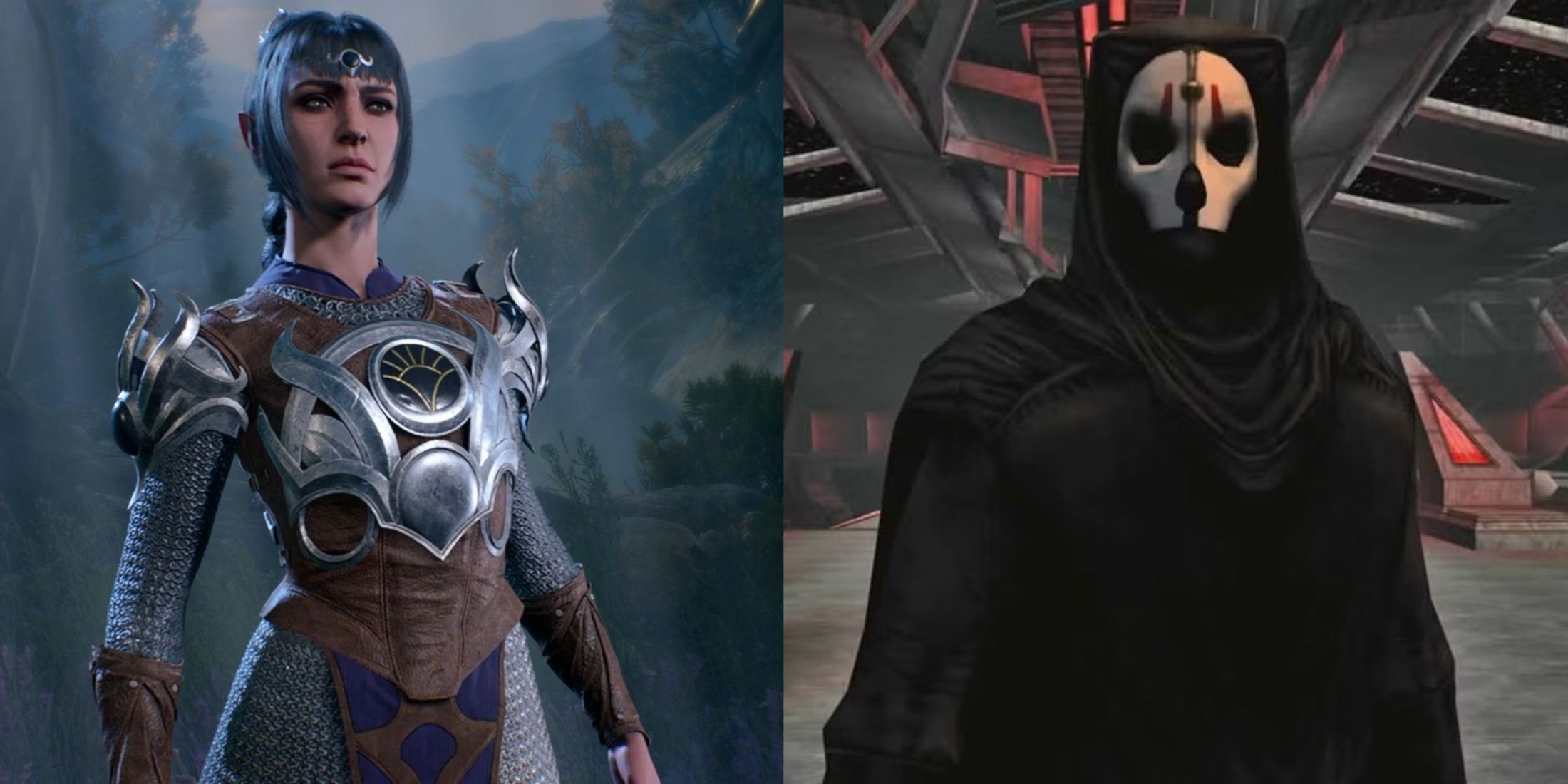
Related
10 Best CRPGs Franchises, Ranked
These incredible CRPG franchises set the tone of the genre as a whole, delivering unforgettable experiences across their storied games.
Dragon Age: Origins instead begins the player’s journey as an untested soul; the whims of fate and birth shaping their origins. Developers crafted multiple origins, understanding that whilst no player would experience them all, their existence offered a sense of personal history—a past that shaped the protagonist before the player took control. A city elf will experience the injustices of Ferelden firsthand, whilst a noble warrior carries the weight of a fallen house. Instead of inheriting a universal background, players inherit a legacy—a myth and a living history of their own making, one that defines them as much as the choices they will make.
2
Disco Elysium
2010s
-

OpenCritic
-
Top Critic Rating:
92/100
Critics Recommend:
96%
- Released
-
October 15, 2019
- ESRB
-
M For Mature 17+ due to Blood, Sexual Themes, Strong Language, Use of Drugs, Violence
- Developer(s)
-
ZA/UM
- Publisher(s)
-
ZA/UM
Revachol is a city where history has died and refuses to be buried, and from its bloated corpse has sprouted a mycelium of ideological turmoil. There is no combat—unless incited by an inanimate rubbish bin, which really did deserve it—instead, Disco Elysium turns every conversation into a battleground, where the player must act as both the angel and the devil on the shoulder, watching as identity and self-destruction wage war.
Harrier Du Bois—Harrister/Baron Von Kikkenberg/Tequila Sunset—awakens tabula rasa, a blank parchment steeped in a festering puddle of alcohol and political disillusions. His thoughts—and, by extension, the players—fracture into echoes of a consciousness, forcefully personified in a Thought Cabinet as unreliable narrators that shape the detective’s world. It’s a system that harkens to Dostoevsky’s tormented protagonist, men consumed by their contradictions and moral failures in search of truth. Disco Elysium is a novel disguised as a game, a fever dream that gives voice to every ideology and forces the player to confront the past and decide what, if anything, can be salvaged.
1
Baldur’s Gate 3
2020s
Magic is real, and it exists when sticks become swords, gardens transform into perilous dungeons, and childhood play becomes vessels for boundless possibilities. These magic worlds, unencumbered by rules beyond those the players set, are what TTRPGs have sought to preserve. And, in turn, is what Baldur’s Gate 3 seeks to distil. This is the closest any CRPG has come to the feeling of a TTRPG experience, where the guiding Dungeon Master is replaced by a script so exhaustive that it teeters on sentience.
Whilst many CRPGs offer scripted narratives with moments of curated player agency, Baldur’s Gate 3 instead breathes—it’s reactive and alive. A locked door is no longer an impassable barrier reserved only for a rogue; it is an invitation to experiment. A goblin encampment is no longer a predetermined skirmish; it is a puzzle of spoken words, where deception or outright absurdity may be just as viable as steel. The game expects choice and, in doing so, captures the magic that exists in this world.
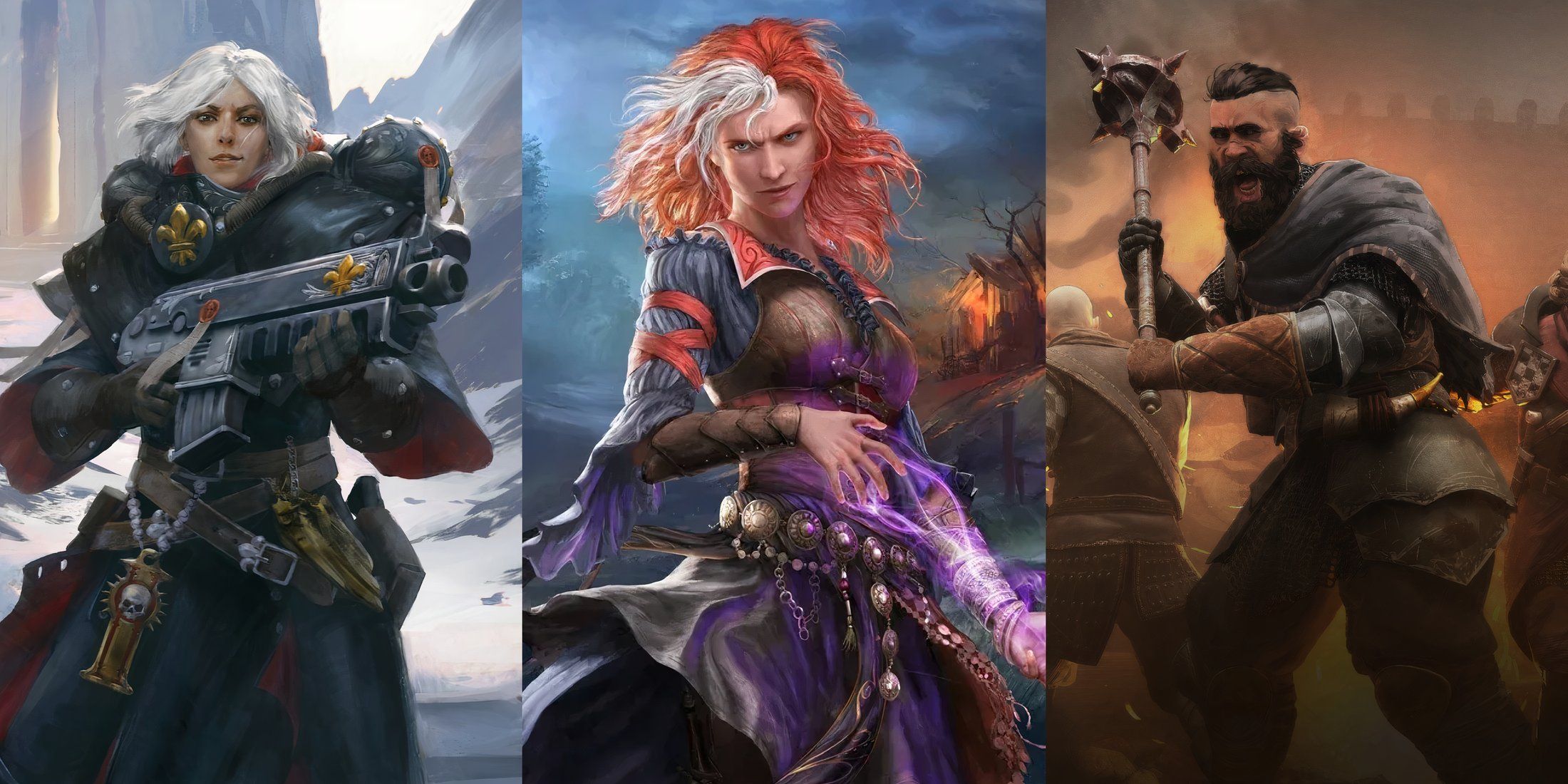
More
Best CRPGs For Co-Op Multiplayer
From Baldur’s Gate 3 to Wartales, these top-tier CRPGs are perfect for some co-op multiplayer fun.











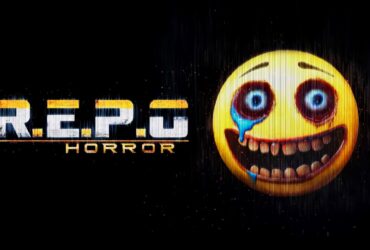
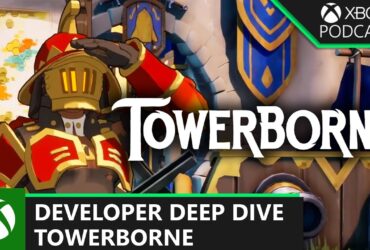


Leave a Reply